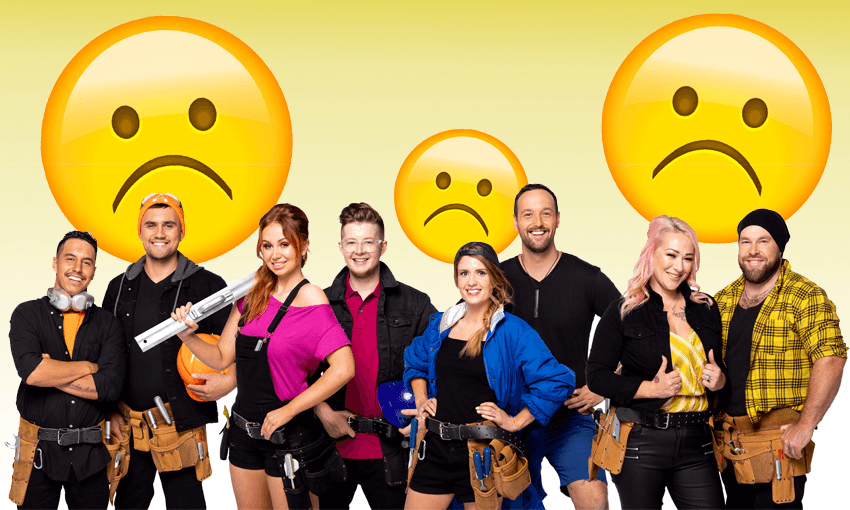As The Block NZ fizzles to an end, psychologist Dougal Sutherland argues that the show now seems designed to destroy relationships, rather than build houses.
Over the past few months we’ve watched four couples designing, planning, painting, papering (sometimes poorly), plastering, and dressing the rooms of converted firehouses to auction them off to the highest bidder. But below the surface of these renovation efforts we’ve also witnessed four couples losing sight of their values and acting out classic psychology in-group vs out-group warring, as well as the subtle psychological manipulation of the individuals involved. We’ve seen cracks appearing – and not just in the plastering. Welcome to The Block NZ.
The show started off with the eager teams trying to do the best they could to design and build their spaces in accord with their own unique vision. But over time, and under relentless pressure, they became increasingly distracted from that vision. Lisa and Ribz’s focus appeared to shift to making alliances with their “friends” and keeping out their “enemies”. The Wellington millennials seemed to be focused on winning and stopping the Blue team, despite the millennials themselves having won the most room reveals.
Sophie and Mikaere spent increasing amounts of time second-guessing their fellow competitors. Of the four teams, the Boys from Te Kuiti stuck most closely to their underlying values of concern for others and treating all fairly, but even this began to look shaky.
How did it all go so wrong? Are these people really like this? I doubt it.
The Block NZ could be seen as a social experiment about what happens to people when they’re put under intense pressure. Some will argue that they knew what they were signing up for. But did they? Should the competitors have been able to predict their reactions to this pressure-cooker of stress? Take any eight ordinary New Zealanders and subject them to extreme sleep deprivation, isolation from their family and friends, the incentive of a big win at the expense of their competitors, and the glory of the media spotlight – would any of us behave any differently?
The Block NZ this year was the equivalent of asking new parents to showcase their first year of parenting on national TV. Sounds fine in theory but as all new parents will know, it would be a whole different thing in practice. And just as there are some things said between new parents at 3am that should never be repeated in public, so too are there things said between couples renovating a house under extraordinary circumstances that should never be repeated, let alone broadcast on TV.
What responsibility do the producers of the show have to ensure the wellbeing of their contestants, all of whom are new to media and the public eye? How much support do the contestants get in dealing with this pressure? What are the health and safety obligations of the producers? Perhaps even more importantly, what subtle manipulations are occurring that stoke the fires of discontent? The judges’ comments, while undoubtedly technically accurate, lacked compassion and seemed better aimed at fellow professionals than the rank amateurs of The Block. The ability to disqualify other teams or take money away from another couple may be useful in pitting one group against another, but how are they consistent with the actual aim of designing and renovating the best apartment?
A tip for the producers of future seasons of The Block: bring couples together prior to the show, help them to clarify and understand their personal values, and then support them to stick to these values under pressure. Develop a Block culture where teams can reward and recognise others for great work and inject some compassion and caring for those who are lucky enough to be selected for the show. Doing this might help ensure that even those contestants who don’t build the best house still retain their dignity.
Dougal Sutherland is a clinical psychologist at Victoria University of Wellington
